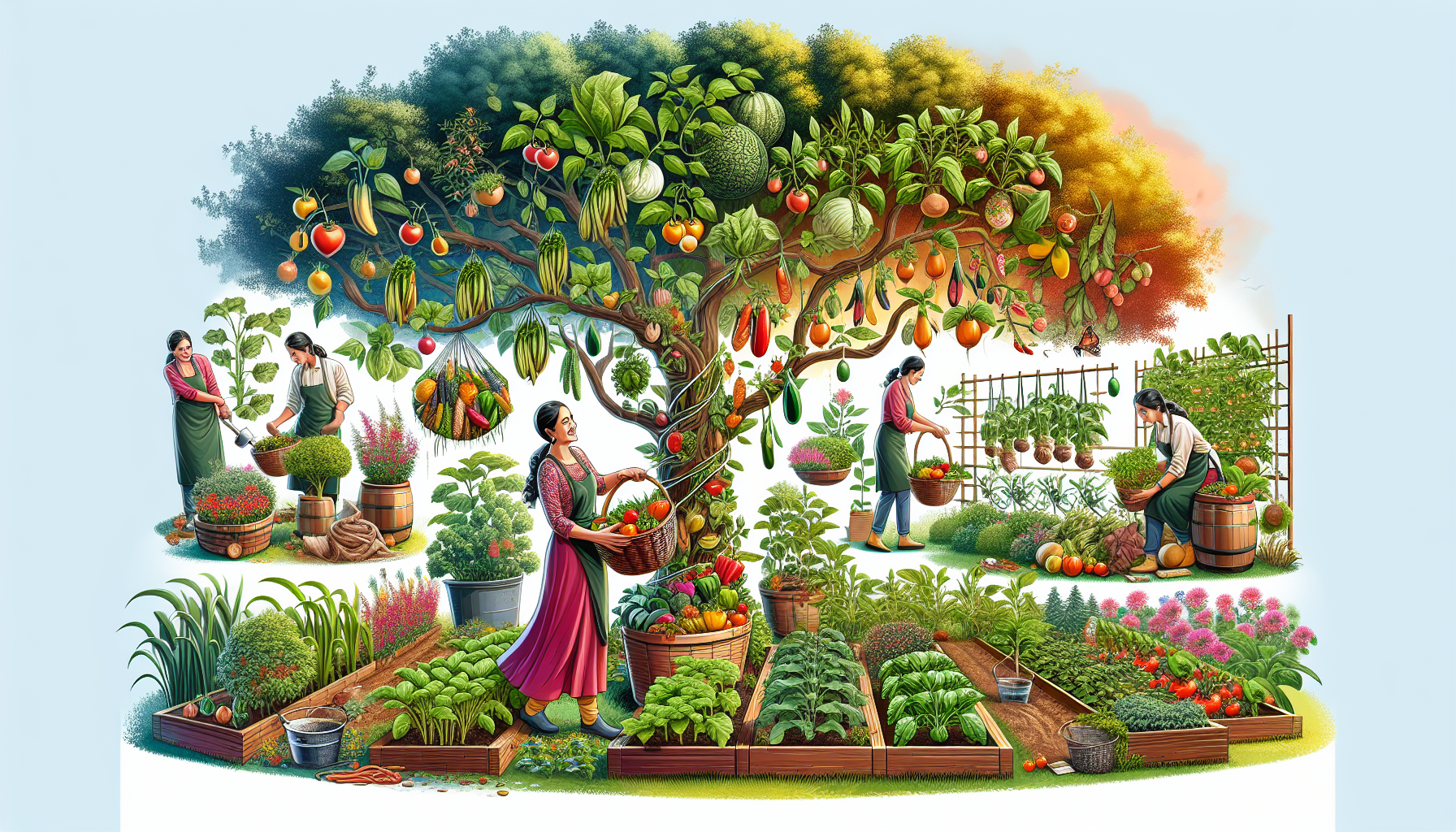Sustainable and ethical fashion is revolutionizing the way we think about our clothing choices, merging style with social responsibility and environmental care. This comprehensive course guides you through the essentials of sustainable and ethical fashion, from understanding its impact and identifying responsible brands, to integrating eco-friendly and ethically made garments into your lifestyle. By delving into topics such as the environmental footprint of the fashion industry, the importance of fair labor practices, and innovative ways to sustainably manage your wardrobe, you’ll learn to make informed choices that align with your values and contribute to a healthier planet. Prepare to embark on a journey that not only enhances your personal style but also supports a sustainable future.
Lesson 1

Introduction to Sustainable and Ethical Fashion
Exploring the world of sustainable and ethical fashion is not just a trend; it’s a movement towards a more responsible way of living. Understanding sustainable and ethical fashion involves recognizing the environmental impact of the fashion industry and advocating for ethical considerations in fashion manufacturing. This journey ensures that our clothing choices support both the planet and its inhabitants.
Environmental Impact of the Fashion Industry
The fashion industry is one of the largest polluters globally, significantly affecting our planet. From water pollution caused by textile production to the excessive waste of fast fashion, the need for sustainable and ethical fashion practices has never been more urgent. By choosing sustainable fashion, you are taking a step towards reducing your environmental footprint.
Ethical Considerations in Fashion Manufacturing
Ethical considerations in fashion manufacturing focus on improving working conditions, ensuring fair wages, and respecting human rights. Sustainable and ethical fashion brands are committed to transparency, allowing consumers to understand where and how their clothes are made.
Key Terms and Concepts
Here are some key terms you should be familiar with:
- Organic: Clothing made from materials grown without harmful pesticides or fertilizers.
- Fair Trade: Products that guarantee fair wages and working conditions for workers.
- Slow Fashion: A movement focusing on quality and sustainability, encouraging consumers to buy less but better.
Case Studies
Considering case studies of sustainable and ethical fashion brands can provide clear examples of how the industry can positively evolve. Brands like Patagonia and Stella McCartney have made significant strides in promoting sustainability and ethical practices, serving as inspiration for both consumers and other companies.
Sustainable and Ethical Fashion Brands to Support
| Brand | Focus |
|---|---|
| Patagonia | Environmental Activism, Fair Trade |
| Stella McCartney | Luxury Fashion Without Leather |
| Veja | Eco-Friendly Sneakers |
Supporting sustainable and ethical fashion is about making informed choices that align with your values. It’s about asking questions, seeking transparency, and opting for brands that prioritize the Well-being of our planet and people. As we embrace sustainable and ethical fashion, we contribute to a healthier, more just world.
Lesson 2

How to Identify Sustainable and Ethical Fashion
Identifying sustainable and ethical fashion is a journey that requires patience, research, and a keen eye for detail. As consumers increasingly demand transparency and ethics in their fashion choices, understanding how to differentiate genuinely sustainable and ethical brands from those simply capitalizing on trends is crucial. This guide will walk you through the steps to ensure your wardrobe reflects your values of sustainability and ethical responsibility.
Understanding Labels and Certifications
One of the first steps in identifying sustainable and ethical fashion is to become familiar with various labels and certifications. These are indicators of a brand‘s commitment to environmental protection, fair labor practices, and animal welfare. Look for certifications such as Fair Trade, GOTS (Global Organic Textile Standard), and B Corp, among others, which provide assurance that a product meets stringent sustainability and ethical criteria.
Materials and Fabrics Matter
The choice of materials and fabrics is fundamental in sustainable and ethical fashion. Sustainable materials are derived from eco-friendly sources that minimize harm to the environment, such as organic cotton, bamboo, and recycled materials. Understanding the environmental impact of different fabrics can guide you towards making more responsible choices.
Brand Transparency is Key
An essential aspect of sustainable and ethical fashion is brand transparency. Brands that are open about their manufacturing processes, supply chains, and labor practices are more likely to adhere to ethical standards. Researching a brand’s practices and seeking out those that provide detailed information about their operations is a step towards supporting genuine sustainability and ethics in fashion.
Fashion Activism and Community Engagement
Engaging with the community and participating in fashion activism can further enhance your understanding of sustainable and ethical fashion. By joining forums, following activists, and participating in discussions, you can gain insights into the latest developments and share knowledge with like-minded individuals.
Practical Tips for Verifying a Brand’s Commitment
Here are some practical tips to help you verify a brand’s commitment to sustainable and ethical fashion:
- Check for comprehensive sustainability reports on the brand’s website.
- Look for partnerships with reputable organizations and NGOs.
- Read reviews and experiences shared by other consumers.
Sustainable and Ethical Fashion Brands to Consider
| Brand | Focus |
|---|---|
| People Tree | Ethical Trade and Sustainable Materials |
| Eileen Fisher | Recycling and Organic Materials |
| Everlane | Transparency and Ethical Factories |
Identifying sustainable and ethical fashion is an ongoing process that evolves as the industry grows. By staying informed, asking questions, and making conscious choices, you contribute to a more sustainable and ethical fashion future.
Lesson 3

Incorporating Sustainable and Ethical Fashion into Your Lifestyle
Embracing sustainable and ethical fashion is more than a trend; it’s a lifestyle choice that reflects a commitment to environmental responsibility and social justice. This guide will help you navigate the process of incorporating sustainable and ethical fashion into your daily life, ensuring your wardrobe not only looks good but also does good.
Building a Sustainable Wardrobe
Starting with the basics is essential when building a sustainable wardrobe. Focus on timeless, high-quality pieces that can stand the test of time, reducing the need for frequent replacements. Consider investing in versatile items made from sustainable materials, and always prioritize quality over quantity.
Upcycling and DIY
Upcycling and DIY projects offer creative ways to breathe new life into existing pieces. Transforming an old shirt into a tote bag or customizing a pair of jeans can give your old favorites a fresh look and extend their lifespan, exemplifying the spirit of sustainable and ethical fashion.
Thrifting and Second-Hand Shopping
Thrifting and second-hand shopping are great ways to find unique pieces while minimizing your ecological footprint. These shopping methods support circular fashion by giving garments a second life, reducing waste and the demand for new production.
Care and Maintenance
Proper care and maintenance can significantly extend the life of your clothing. Simple practices like washing clothes in cold water, air-drying, and repairing minor damages can preserve your garments’ condition and appearance, aligning with sustainable fashion principles.
Advocating for Change
Finally, advocating for change in the fashion industry is crucial. Supporting sustainable brands, spreading awareness, and encouraging others to make conscious choices can collectively drive the industry towards greater sustainability and ethics.
Sustainable Fashion Essentials
| Item | Material |
|---|---|
| Basic Tee | Organic Cotton |
| Denim Jeans | Recycled Cotton |
| Eco-friendly Sneakers | Natural Rubber |
Incorporating sustainable and ethical fashion into your lifestyle is a rewarding journey that benefits both the planet and its inhabitants. By making thoughtful choices, upcycling, thrifting, and advocating for change, you contribute to a more sustainable and ethical world.
Sustainable and ethical fashion marks the end of our journey together, bringing us to a closer understanding of how our clothing choices can impact the world. Through exploring the environmental and ethical considerations of the fashion industry, identifying sustainable brands, and integrating responsible practices into our lifestyles, we’ve equipped ourselves with the knowledge to make more conscious decisions. This course has laid the foundation for a sustainable wardrobe that not only looks good but also aligns with the values of environmental stewardship and social responsibility. As a final step, take the 10-question quiz below to test your knowledge and ensure you’re ready to join the sustainable fashion movement with confidence.
Test Your Knowledge With this short Quiz
Click here to copy your score to share on facebook!







